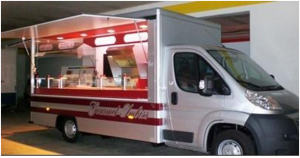When opening a bar or restaurant, you may wonder how to get a liquor license. This article will discuss the Requirements, Costs, Online training options, and Enforcement. Hopefully, you’ll find the helpful information. Then, start your journey to gaining the license or tabc licensing. And don’t forget to check back often for updates! In the meantime, learn all you can about alcohol sales training.

Requirements
Retailers must only sell alcohol in their licensed establishments, and the actual sale must occur on the premises. This includes a face-to-face transaction between the buyer and seller. Receiving credit card account information from a customer may not constitute an actual sale. Rather, the customer visiting the retailer’s licensed establishment makes the sale. To avoid violating the law, alcohol retailers should not serve alcohol all day.
They should complete Responsible Beverage Service (RBS) training to ensure compliance with the law. This program will equip servers and managers with the knowledge and skills necessary to sell and serve alcohol responsibly. Once the training course is completed, participants will receive a certification card from the ABC, valid for three years. Licensing agencies must ensure that their employees are current with their certification. Fortunately, this training is available at no cost to licensees.
Costs
When analyzing alcohol sales and service costs, you must look at both direct and indirect costs. Direct costs are expenses associated with the sale of alcohol and include mixers, garnishes, and other consumables. The cost of these items is determined by dividing the starting inventory by the ending list and adding all purchases between these two points. You can examine liquor expenses over various periods, such as the full year or fiscal quarter. Looking at COGS (cost of goods sold) and pour cost would be best.
The cost of different drinks will yield additional pour costs, so you must consider this. It would be best not to base your cost on industry benchmarks since pour costs are variable. For example, pouring a glass of wine costs more than four glasses of beer, but it’s worth remembering that pour cost reflects profit, not the cost of producing a glass of beer. Fortunately, pour costs are based on direct and indirect costs, and you can adjust these costs as necessary. By implementing daily specials or happy hours, you can reduce the cost of a drink.
Online training options
In today’s world, selling and serving alcohol responsibly is essential for a business owner or manager. Failure to provide proper service can result in fines, license suspension, or even closure. In addition, various state and local laws and compliance guidelines govern the sale and service of alcohol in business establishments. Online alcohol sales and service training can help you meet these requirements and avoid the hassle of implementing and tracking training programs yourself. The following are just a few online alcohol sales and service training options.
EdApp’s Responsible Drinking course is an excellent choice for employees of licensed premise establishments. This course covers various topics, including the role of alcohol in society and the applicable laws concerning alcohol consumption. It consists of a self-paced theory course as well as practical learning. The course concludes with a written assessment, which requires successful completion. A comprehensive alcohol sales and service training course can help you avoid legal problems and ensure your employees are safe in their work environment.
Enforcement
Enforcement of alcohol sales and service laws has many benefits. It decreases alcohol sales to minors and, in some communities, has increased the enforcement efforts of local law enforcement agencies. The increased enforcement efforts also reduce the number of alcohol-related crashes among underage drivers. Enhanced enforcement programs may also increase the perceived risk of detection among retailers. This is done through various means, including mailed letters and mass media campaigns. For example, a recent study showed that increased enforcement actions significantly reduced the number of crashes involving alcohol-impaired drivers under the age of 21.
Enhanced enforcement of alcohol sales and service laws reduces underage drinking, particularly in urban areas. Alcohol sales and service training is required by law and must be provided to all employees. The Department may require proof of training to verify compliance with the law and may issue a separate violation notice if no proof is provided. In the case of a violation, a licensee must provide the Department with written proof that its employees have undergone the required training or face a fine of up to $650.







